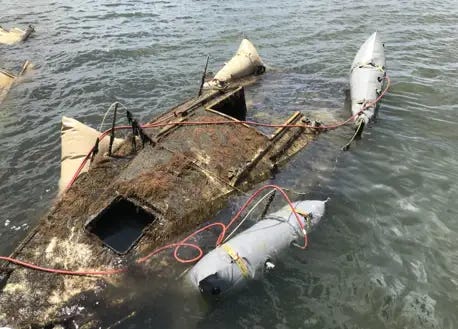New State Law Targets Removal of At‑Risk and Derelict Boats
A comprehensive state law took effect on July 1, aiming to reduce the presence of at‑risk and derelict vessels statewide and strengthen enforcement capabilities for the Florida Fish and Wildlife Conservation Commission (FWC) and its partners.
Senate Bill 164, signed by Gov. Ron DeSantis on June 19, clarifies vessel ownership and enhances the tools available to address boating hazards, according to a June 27 FWC press release (myfwc.com).
Local captains around the Cortez Bridge recently raised concerns over sunken and unregistered boats in the area. In May 2024 alone, law enforcement issued over 20 citations targeting unregistered or derelict vessels. In Manatee County, FWC records show 19 derelict vessels on local waters in that year.
Under the new law, key changes include:
A valid vessel title now serves as presumed proof of ownership.
Vessel owners may be required to undergo an “Effective Means of Propulsion” evaluation on demand.
Boats earning three at‑risk citations within 24 months can be declared public nuisances and treated as derelict vessels.
Minor infractions, such as expired registrations or chronic anchoring violations, are now non-criminal and enforceable via mailed citations.
Funding from derelict vessel removals can now support proactive prevention efforts.
Penalties escalate for repeat offenders, ranging from misdemeanors to felonies, with potential jail time.
It is now illegal to live aboard a vessel declared derelict—a first‑degree misdemeanor.
Effective July 1, 2026, long‑term anchored boats will require annual electronic permits, with fines from $100 to $500 for unauthorized stays.
Certain vessels are exempt, including those in government service, commercial or recreational fishing, or docked or moored legally.
Capt. Travis Franklin of FWC’s Derelict Vessel Removal and Prevention Program stated that the legislation builds upon existing successes in addressing derelict boat issues and focuses on preventing at-risk vessels from worsening.
The FWC has already removed nearly 200 vessels through its Vessel Turn-In Program and encourages owners of at-risk boats to apply.
The new law equips authorities with stronger preventive and enforcement tools, aiming to protect waterways, marine habitats like seagrass beds, and public safety.

